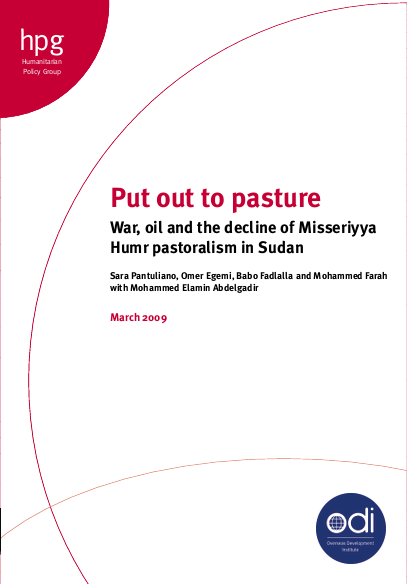
This report presents the findings of a study into the current
evolution of Misseriyya livelihoods commissioned by the UK
Department for International Development upon request from
UNMIS and UNRCSO Abyei. The study was conducted by a fiveperson
team comprising one Arabic-speaking, international
researcher with extensive knowledge of Sudan and pastoralism
and four experienced Sudanese researchers1 with expertise in
pastoralism, range management, animal production and
agricultural economics. All five researchers were familiar with
Dar Misseriyya and had conducted substantive fieldwork in the
region in the past. Two team members hailed from the region
itself, a factor which facilitated access to stakeholders in many
of the areas visited.
Data collection and field analysis focused on assets, livelihoods strategies and outcomes, which were examined within the broader environmental, social, political and economic context to take into account the institutions, policies and processes affecting the changes Misseriyya livelihoods are undergoing. Special attention was paid to the relationships between different interest groups in the area, to map evidence of competition over resources and to identify other points of possible conflict.